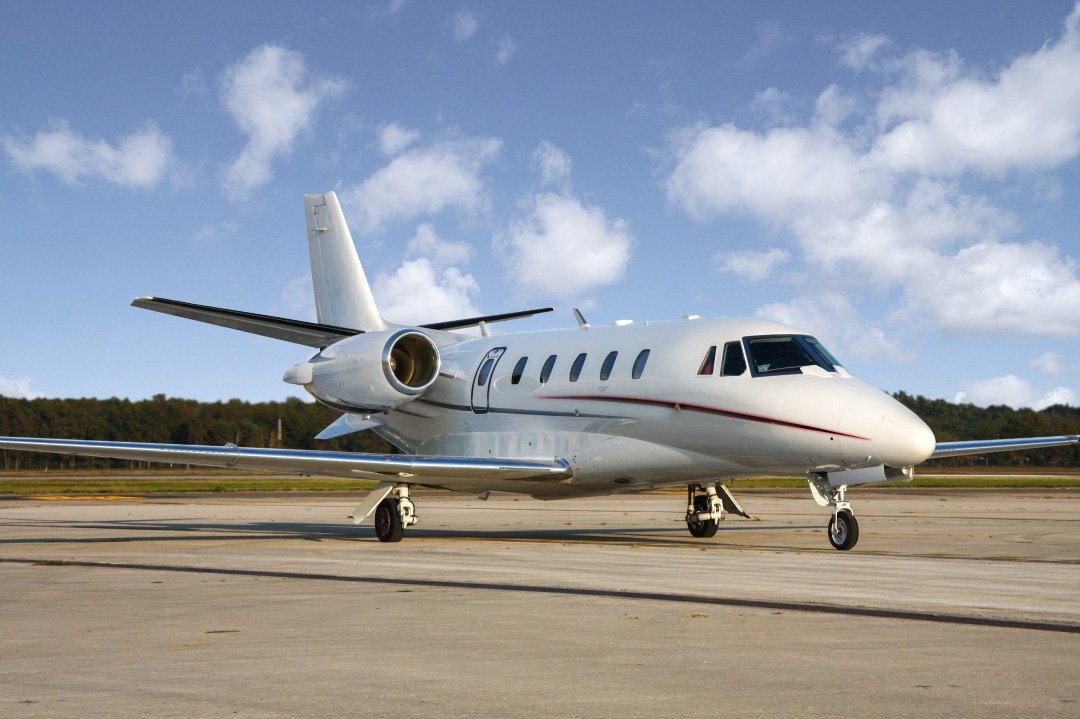Reading Time: 6 minutes
Table of contents
- What is epilepsy?
- Symptoms of epilepsy
- Is flying with epilepsy safe?
- Does flying promote an increase in epileptic seizures?
- 10 tips for flying safely if you have epilepsy
- Consider flying with a medical escort if you have epilepsy
- Why might an air ambulance be the best option for epileptic patients?
- Contact us for a free quote now!
Epilepsy is the fourth most common neurological disorder in the world. It is distinguished by electrical activity surges in the brain, which are responsible for recurring seizures. Seizures and epilepsy in general can jeopardize the safety of epileptics, especially when flying long distances. In this factsheet, we explain everything you need to know about epilepsy and what you can do to ensure a safe flight. In this regard, a fully equipped dedicated air ambulance is often the more prudent solution to return to your home country.
What you should know about flying with epilepsy
- Flying with epilepsy is generally safe. However, those with uncontrolled seizures should avoid flying long haul
- Certain aspects of flying, such as flight apprehension, stress and anxiety and others might increase the risk of seizures occurring
- Fly with a medical escort or in an air ambulance to ensure that you are safe throughout the flight
What is epilepsy?
Epilepsy is a neurological condition that causes recurrent, unprovoked seizures. Simply put, seizures are bursts of electrical activity in the brain that temporarily affect its proper functioning. The terms "epilepsy" and "seizure disorders" are interchangeable.
Symptoms of epilepsy
Seizures can have various effects on people depending on which part of the brain is involved. Some of the possible symptoms of epilepsy are:
- Stiffness
- Collapsing
- Loss of awareness and staring blankly into space
- Uncontrollable jerking and shaking, known as a "fit"
- Unusual sensations, such as:
- Tingling in the arms or legs
- Strange smells or tastes
- A “rising” feeling in the tummy
The patient may also pass out and not remember what happened.
Causes of epilepsy
In epileptic patients, scrambled electrical signals in the brain cause sudden bursts of electrical activity, similar to an electric storm. Seizures are caused by this. However, it is unclear why this occurs. It could be caused by genetics, but it can also be caused by brain damage, such as from:
- a stroke
- a brain tumor
- a brain infection
- a severe head injury
- a lack of oxygen during birth
- drug abuse or alcohol misuse

Is flying with epilepsy safe?
Most people with seizures can fly safely. However, the Aerospace Medical Association recommends that people with uncontrolled seizures avoid flying long distances on commercial airlines.
While people are not routinely barred from flying, there may be concerns about the lack of medical assistance available during a flight and the safety of other passengers if the patient is confused or experiences behavioral changes during or after a seizure in a confined space.
It's worth noting that it is illegal for airlines to refuse you boarding because you have epilepsy and may have a seizure. However, an airline may request a letter from your doctor stating that you are fit to fly. People who are still having seizures should travel with a companion, according to the Aerospace Medical Association.
Does flying promote an increase in epileptic seizures?
A study on the relationship between epilepsy and air travel found that flying appears to promote an increase in seizures. The most significant effects of flight-related seizures appear to be flight apprehension, stress and anxiety, sleep disruption and sleep loss.
Important: People with epilepsy are frequently afflicted with emotional disorders such as anxiety or depression, which can be extremely disabling, increase stress, and disrupt their sleep patterns.
Seizures are expected to occur more quickly in response to hypoxia episodes caused by low oxygen levels in the cabin, according to the same investigation. In addition, longer flights disrupt biological rhythms, pose more physiological challenges, and, ultimately, increase the risk of in-flight seizures.

Furthermore, this study found that the higher the seizure rate prior to flying, the higher the likelihood of an increase in seizures during and after the flight. Having seizures in the week preceding a flight may also be a risk factor for such an increase. Those with complete seizure control, on the other hand, appear unlikely to have a flight seizure, even when flying long distances.
10 tips for flying safely if you have epilepsy
Being epileptic does not obligate you to be an armchair traveler. Air travel, like any other mode of transportation, is very doable if you plan ahead of time and exercise caution.
Do you crave a change of scenery? You can have a fun (and safe) trip with some simple planning. Follow these steps to ensure your travels are safe and enjoyable, whether you're on a business trip or a bucket-list vacation:
Bring plenty of medications
If you take epilepsy medication, bring enough to last the duration of your trip, plus some extra doses in case of travel delays. Prescriptions should be stored in their original containers, with the labels readable.
Tip: Requesting a letter from your doctor explaining your condition and listing the medications you use to control your seizures can help you navigate security concerns.
Keep your medications on hand
Medication should not be packed in your checked luggage. Your flight could be delayed, or you could be stuck on a plane for several hours without your medication. Most airlines have emergency medical kits with medications for people who have seizures on board. You can't, however, guarantee that they're fully stocked or well-equipped.
Tip: Continue to take your medications as you normally would at home, even though it may be difficult when you're in a different time zone.
Bring copies of your prescriptions
Request a copy of your medical records and duplicate prescriptions from your doctor in case you need a refill or replacement while away, especially if you're traveling out of the country or to a remote location.
Chat with your seatmates about your condition
If you are concerned about having a seizure while flying, inform the person sitting next to you or the cabin crew of your condition. Tell them how your seizures affect you and how they can help you if one occurs.
Tip: If you have seizures that cause you to act erratically, you should travel with someone who can explain what's going on and reassure the other passengers that you'll be fine.
Request an aisle seat
If you have a seizure during the flight, an aisle or bulkhead seat may be more comfortable and provide more room for those around you to move and assist you. Give the airline as much notice as possible so that it can accommodate your request.
Tip: Though it is more expensive, flying first or business class and being able to stretch out and rest comfortably can be worth it, especially if the flight is long.
Choose your destination carefully
If you're traveling for business, you probably don't have much of a say in where you go. On the other hand, if you are traveling for pleasure, you should consider the climate and accommodations at your destination. Some people with epilepsy prefer climates similar to their home country. If you're from the South, you might not want to go north in the winter, and if you're from a colder climate, you might not want to vacation somewhere hot and humid.
Tip: If bright lights cause your seizures, you should avoid amusement parks as well as places like casinos, which are known for their flashing lights and neon signs.
Examine your healthcare coverage
Find out if you will have coverage at your destination if you require medical attention before booking a flight. Inquire about additional coverage if necessary. Purchasing travel insurance can also be beneficial.
Tip: Check if there are any exclusions before purchasing.
Wear a medical identification bracelet
If you have a seizure in public, medical jewelry or a medical identity card can help alert others to your condition.
Take the necessary steps to ensure a good night's sleep
Sleep deprivation can cause seizures in some people. When traveling, it can be difficult to get your usual rest, so it's important to intentionally plan for rest time to help reduce your risk of having a seizure during your flight.
Tip: To make the transition easier, plan your air travel so that you arrive at your destination in the afternoon or evening, when it is closer to bedtime
Relax and enjoy yourself
Seizures can also be triggered by stress. Planning your trip activities ahead of time can help you avoid unnecessary stress. Eating and drinking normally can also help. Don't overdo it and try to remain calm if things go awry.

Consider flying with a medical escort if you have epilepsy
When it comes to flying a sick or injured person, commercial medical escorts have become a popular way to save money while still ensuring the patient receives a continuum of care.
Connecting you to our destinations, Medical Air Service has developed a service of commercial medical escort, which is available on both domestic and international airlines, with the goal of protecting your well-being and safety. Our health personnel accompaniment service is designed for the transfer of passengers who are in recovery, in convalescence, or are chronically ill and are considered fit-to-fly via a commercial airline aircraft under the supervision of medical personnel.
This plan is customized to your specific needs and includes specialized personnel as well as personalized attention. Our commercial medical escorts are highly trained healthcare professionals who are trained to handle an epileptic fit without endangering the patient. They have the necessary experience to time the duration of the seizure, position the patient on their side to help keep their airway clear, and most importantly, not put anything in their mouth. Contrary to popular belief, you cannot swallow your tongue during a seizure.
If you have a chronic illness such as epilepsy, have been discharged from medical or surgical treatment, or need oxygen to fly, please contact our dispatch center and let our representatives advise you and find the best solution for your trip.
Why might an air ambulance be the best option for epileptic patients?
Air ambulances, also known as medical flights, function similarly to ground ambulances. The main difference is that they travel farther and faster. They are typically requested when a patient must travel long distances and requires special medical care along the way. Heart attacks, strokes, and epilepsy are just a few of the complex medical conditions that may require the use of an air ambulance.

Our unwavering mission is to provide high-quality air ambulance services to international patients in medical emergencies by matching the professional experience of modern healthcare facilities in patient care. We offer an all-inclusive experience that begins with expert advice from our ground crew and progresses to highly trained aeromedical crews who have dealt with a wide range of in-flight medical emergencies. Our ambulance jets are constantly stocked with specialized and sophisticated equipment and medications. Our bed-to-bed service, which is available whether you request our commercial medical escort service or charter an air ambulance, facilitates patient transfers from the hospital to the aircraft.
Contact us for a free quote now!
Are you looking for an air ambulance service to arrange long-distance patient transportation? Please get in touch with our multilingual team so we can advise you on the best mode of transportation for your needs. Our helpful experts will respond as soon as possible to provide you with a free, non-binding quick estimate for your trip.
Get in touch now